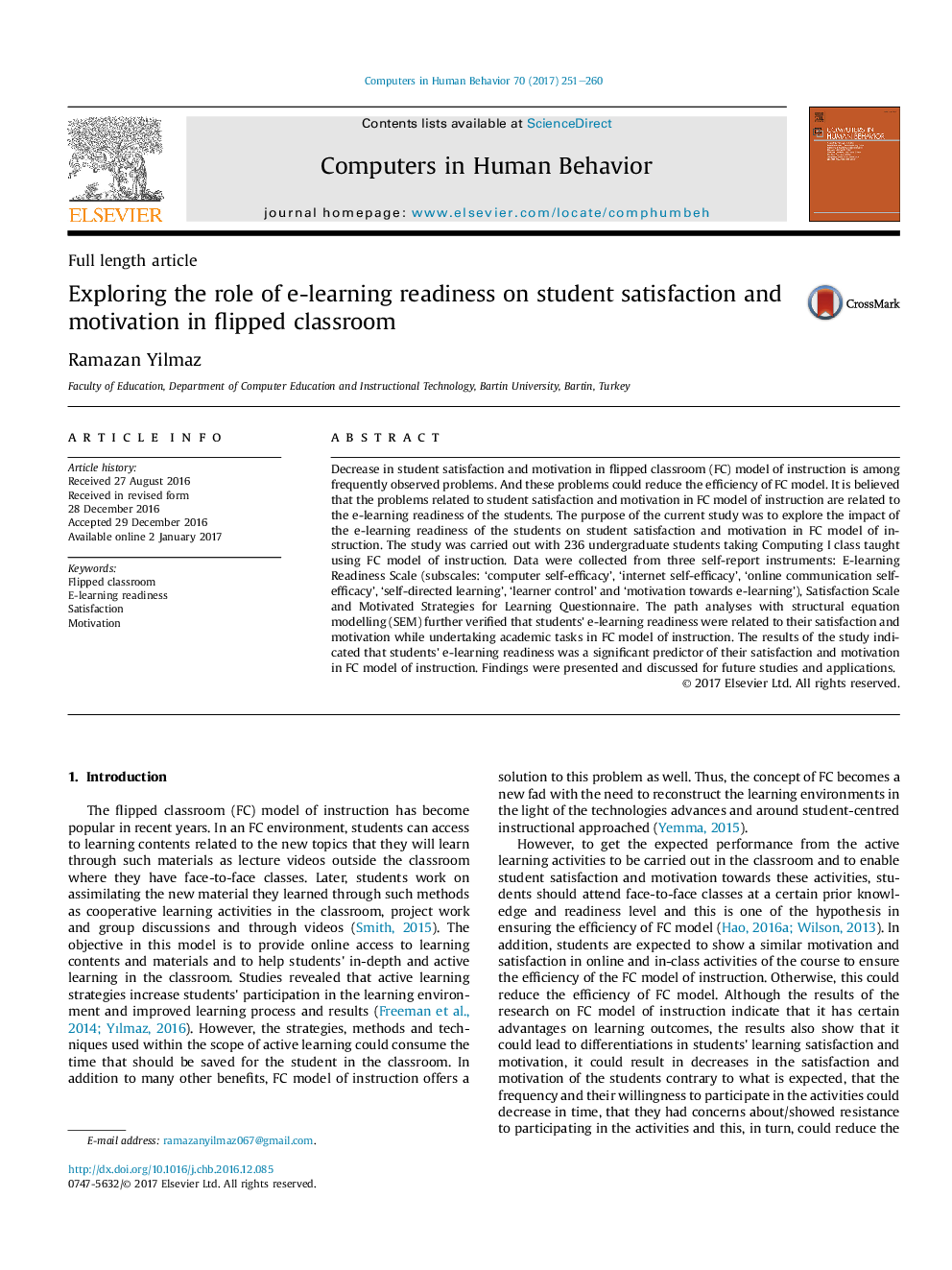| Article ID | Journal | Published Year | Pages | File Type |
|---|---|---|---|---|
| 4937295 | Computers in Human Behavior | 2017 | 10 Pages |
Abstract
Decrease in student satisfaction and motivation in flipped classroom (FC) model of instruction is among frequently observed problems. And these problems could reduce the efficiency of FC model. It is believed that the problems related to student satisfaction and motivation in FC model of instruction are related to the e-learning readiness of the students. The purpose of the current study was to explore the impact of the e-learning readiness of the students on student satisfaction and motivation in FC model of instruction. The study was carried out with 236 undergraduate students taking Computing I class taught using FC model of instruction. Data were collected from three self-report instruments: E-learning Readiness Scale (subscales: 'computer self-efficacy', 'internet self-efficacy', 'online communication self-efficacy', 'self-directed learning', 'learner control' and 'motivation towards e-learning'), Satisfaction Scale and Motivated Strategies for Learning Questionnaire. The path analyses with structural equation modelling (SEM) further verified that students' e-learning readiness were related to their satisfaction and motivation while undertaking academic tasks in FC model of instruction. The results of the study indicated that students' e-learning readiness was a significant predictor of their satisfaction and motivation in FC model of instruction. Findings were presented and discussed for future studies and applications.
Related Topics
Physical Sciences and Engineering
Computer Science
Computer Science Applications
Authors
Ramazan Yilmaz,
